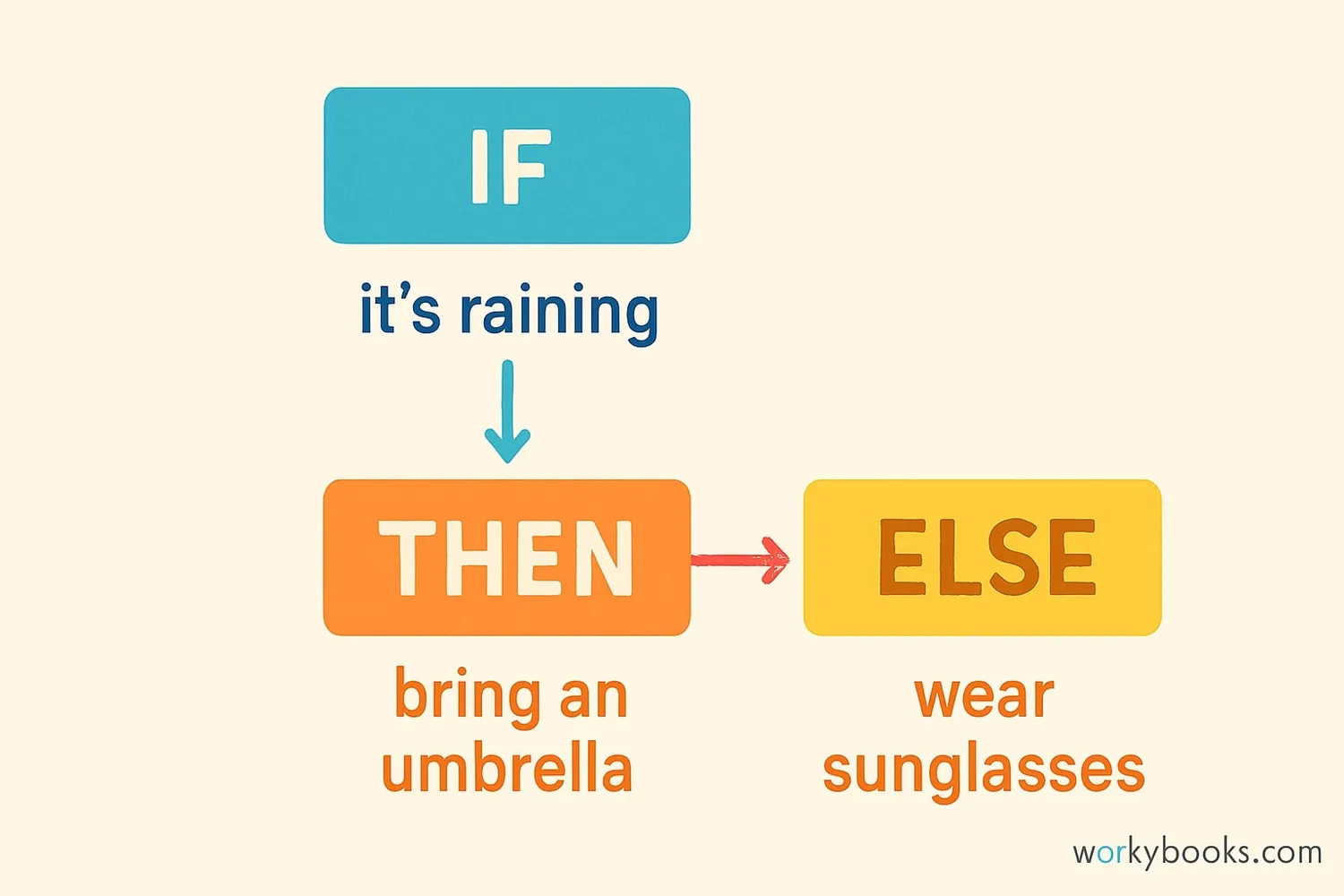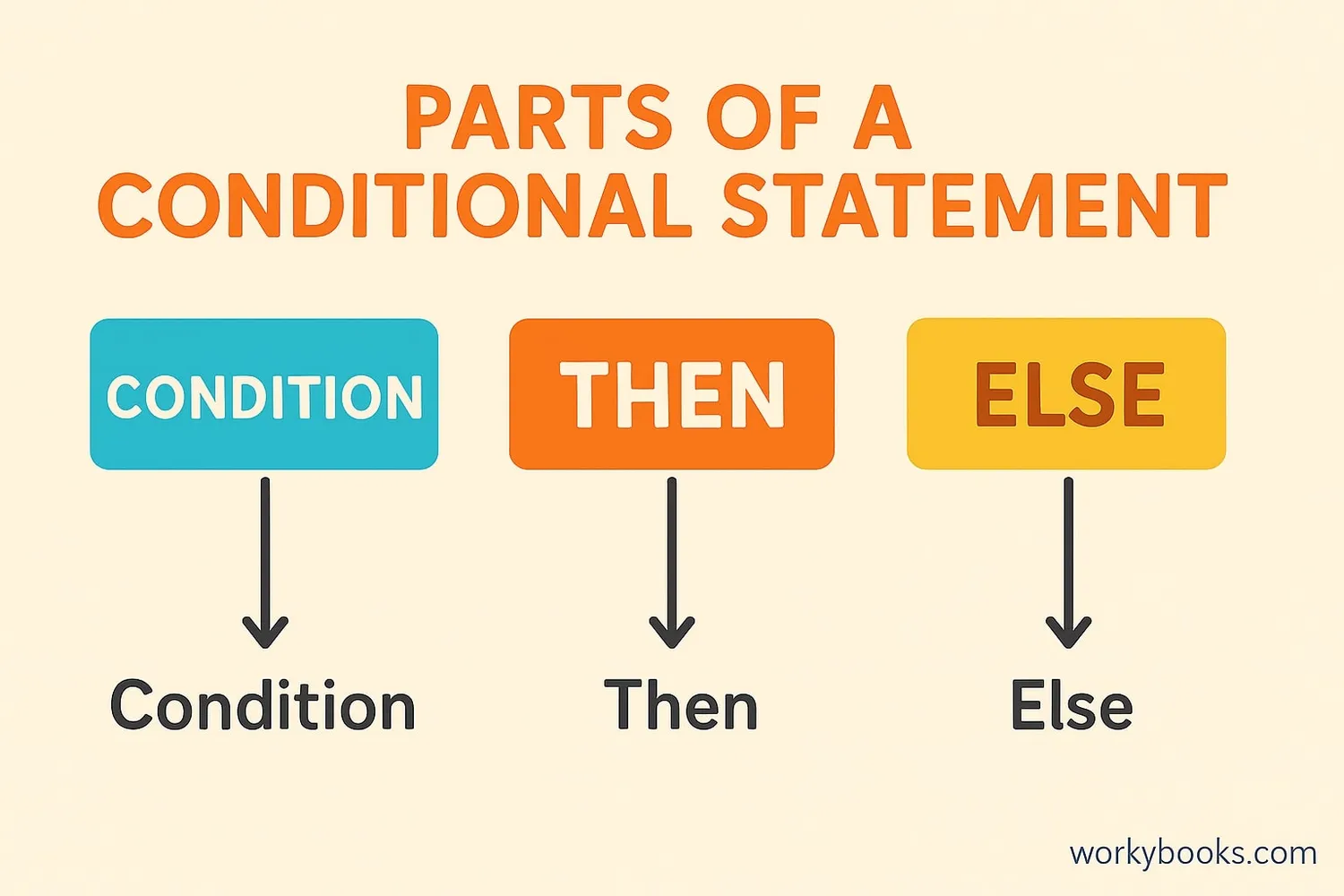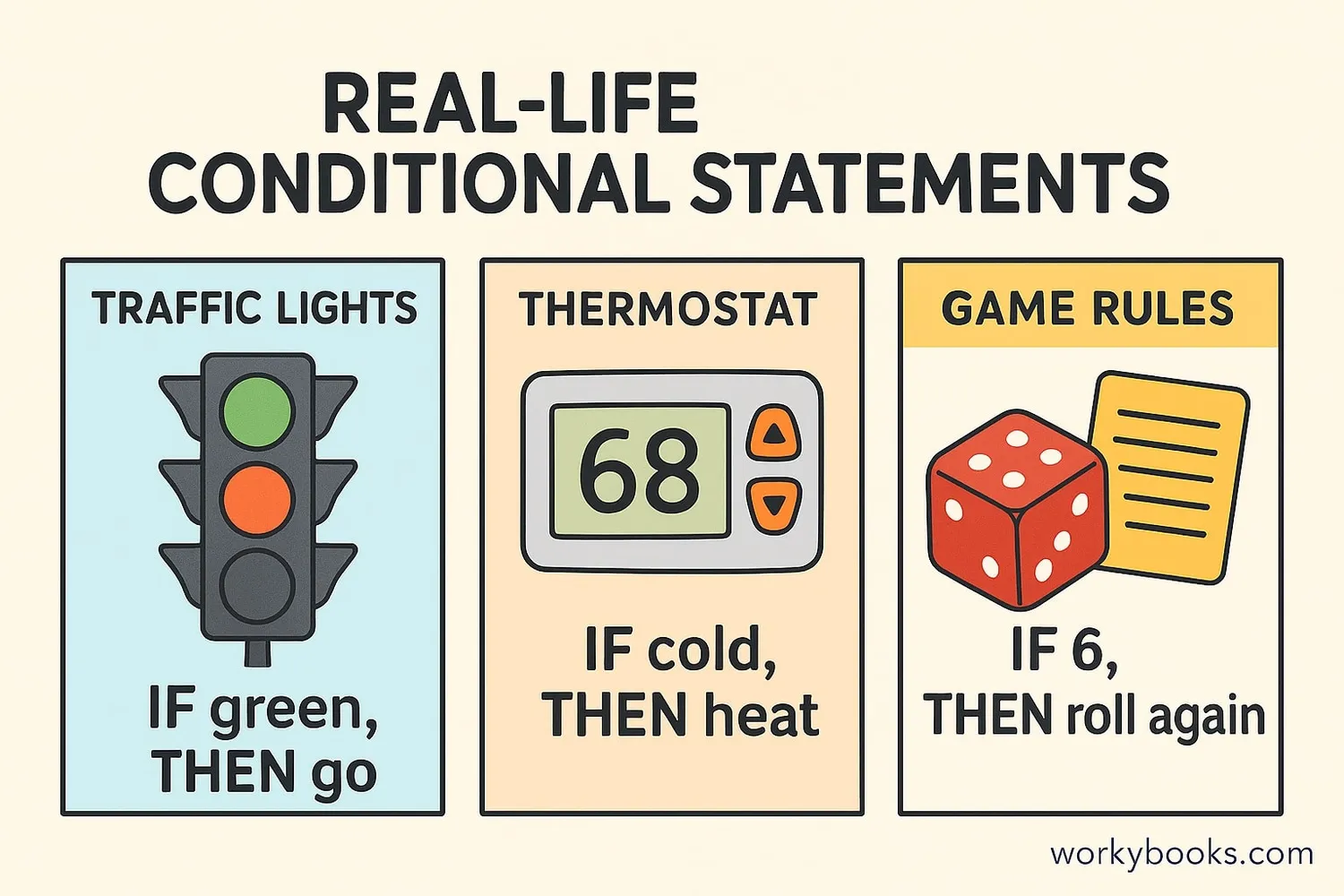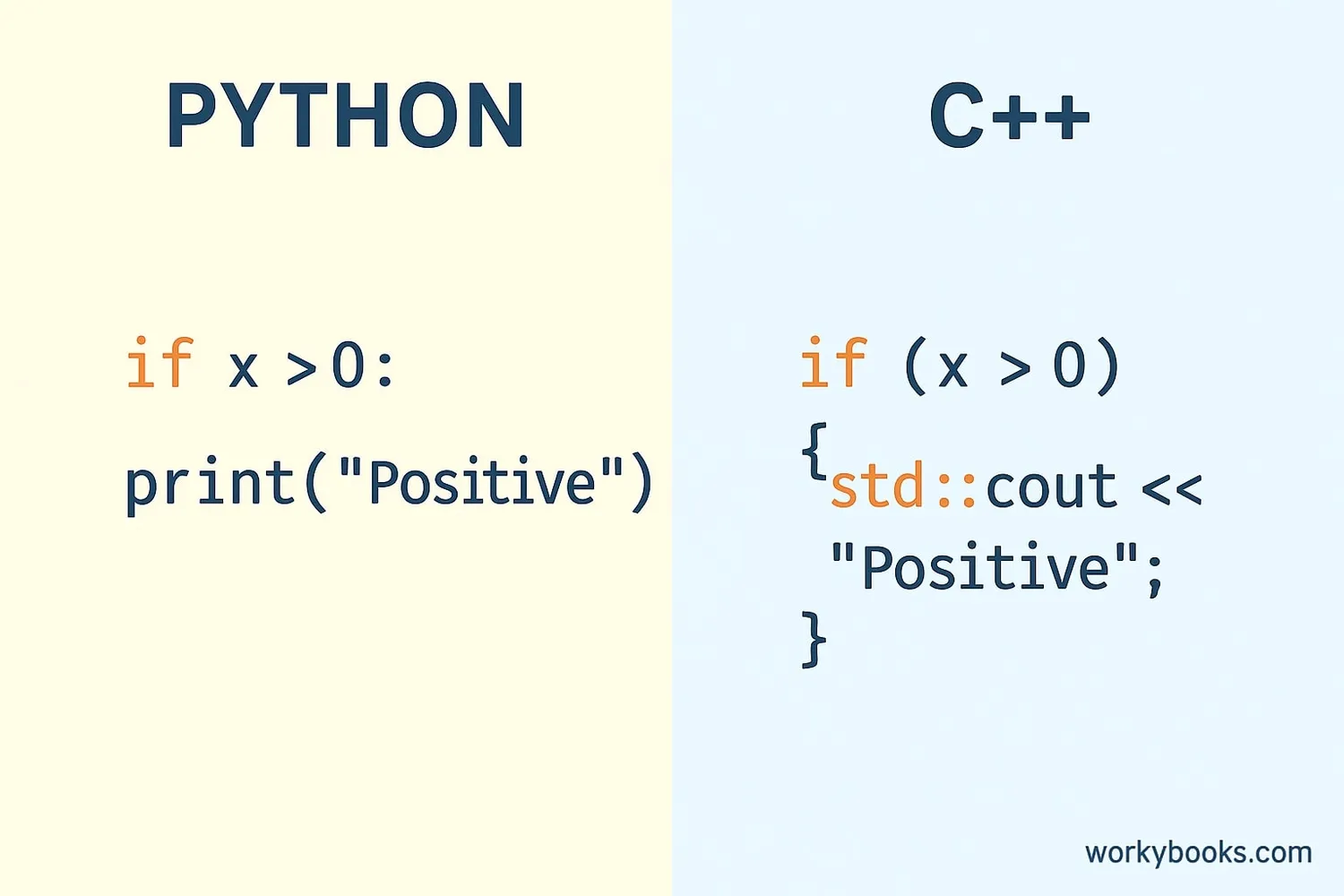Conditional Statements - Definition, Examples, Quiz, FAQ, Trivia
Learn about if-then logic with simple explanations and fun activities
What is a Conditional Statement?

A conditional statement is like a decision-maker in programming. It helps computers make choices based on certain conditions. Think of it as a rule that says: "If something is true, then do this action. Otherwise, do something else."
Conditional statements are everywhere in our daily lives:
• If it's raining, then take an umbrella
• If you're hungry, then eat a snack
• If your room is messy, then clean it up
In programming, conditional statements help computers make smart decisions just like we do every day!
Key Concept
Conditional statements are decision-making tools that help programs respond differently to different situations.
Parts of a Conditional Statement

Conditional statements have three main parts:
// Code to run if condition is true
} else {
// Code to run if condition is false
}
• Is the score greater than 10?
• Did the user press the spacebar?
• Is the light turned on?
Remember
The "else" part is optional. Sometimes we only care about what happens when the condition is true!
Real-World Examples

Conditional statements are all around us! Here are some examples:
Traffic Light:
stop();
} else if (light == "yellow") {
slowDown();
} else { // light is green
go();
}
turnOnHeater();
} else if (temperature > 72) {
turnOnAC();
} else {
doNothing();
}
showWinScreen();
} else {
continuePlaying();
}
Did You Know?
Your brain uses conditional thinking constantly - every time you make a decision, you're using if-then logic!
Conditional Statements in Programming

Conditional statements work similarly in most programming languages. Here's how they look in Python and C++:
Python Example:
if age >= 13:
print("You can create an account")
else:
print("You're too young to create an account")
if (age >= 13) {
cout << "You can create an account";
} else {
cout << "You're too young to create an account";
}
• Both use the keywords if and else
• Both check a condition in parentheses
• Both have code blocks that run based on the condition
The main differences are in the syntax (curly braces {} in C++ vs. indentation in Python).
Programming Tip
When learning a new programming language, conditional statements are one of the first things you should learn!
Conditional Logic Quiz
Test your understanding with this 5-question quiz. Choose the correct answer for each question.
Frequently Asked Questions
Here are answers to common questions about conditional statements:
Logic Trivia
Discover interesting facts about conditional logic:
Ancient Logic
The concept of conditional statements dates back to ancient Greek philosophers like Aristotle who developed formal logic systems around 300 BC.
Brain Logic
Your brain makes thousands of conditional decisions every minute without you even realizing it, like adjusting your balance while walking.
Space Conditionals
The Apollo moon missions used over 500,000 lines of code filled with conditional statements to make critical decisions during spaceflight.
Robot Decisions
Self-driving cars make over 1,000 conditional decisions per second while navigating through traffic.





